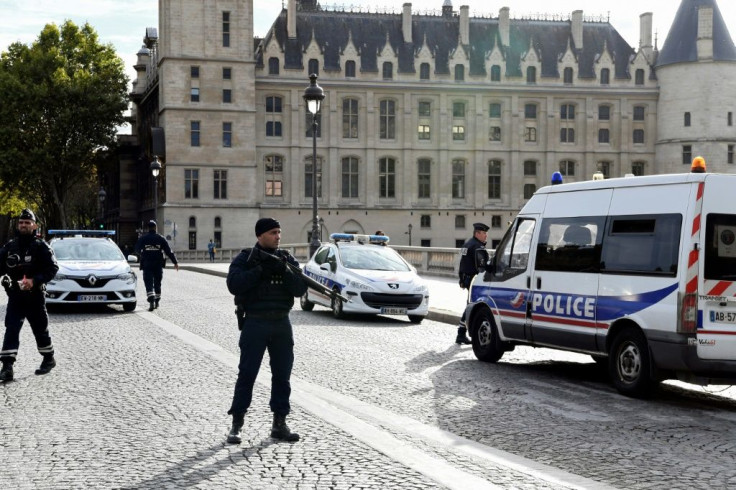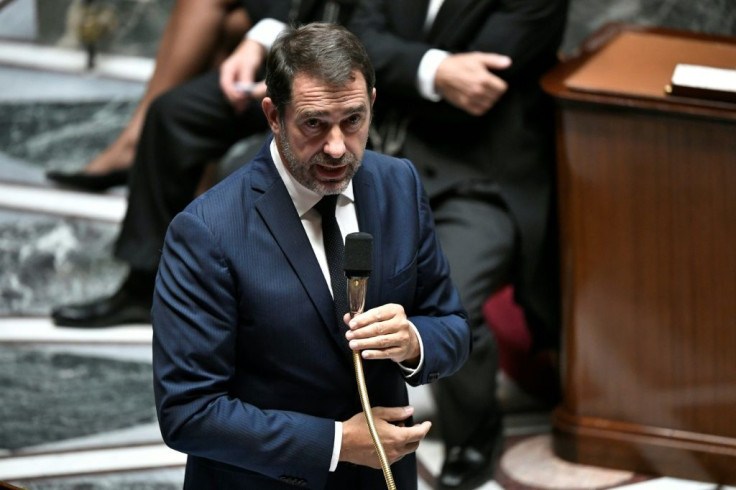France Admits 'Failings' Over Paris Police Attacker's Radicalisation

France's interior minister acknowledged Sunday that officials should have kept a closer eye on the Paris police employee who stabbed four colleagues to death last week, after investigators found evidence he had supported an extreme version of Islam.
"Obviously, there were failings," Christophe Castaner told TF1 television, but he said he would not resign over the matter as some rightwing opponents have said he should.
Castaner has come under fire after initially claiming that Mickael Harpon, a 45-year-old computer expert at the Paris police headquarters, had never given the "slightest reason for alarm" ahead of Thursday's attack.
Investigators later revealed that Harpon had in fact been in contact with adherents of Salafism, the ultra-conservative branch of Sunni Islam.
He had defended "atrocities committed in the name of that religion," anti-terror prosecutor Jean-Francois Ricard said Saturday.
On Sunday, Castaner said Harpon had caused alarm among his colleagues as far back as 2015, when he defended the massacre of 12 people at the Charlie Hebdo newspaper by two brothers vowing allegiance to Al-Qaeda.
But even though a police official charged with investigating suspected radicalisation among the force questioned the colleagues, none of them wanted to file an official complaint.

"Apparently they decided not to make a report," Castaner said. "The failure occurred at this moment.
"There was nothing in his personnel file that indicated he might be radicalised... If there had been a sign, maybe we could have avoided this," he said.
Castaner will face questioning by parliament's intelligence commission Tuesday over the attack, its president Christian Cambon said Sunday.

"We're going to try to find out what these failings were," Cambon told AFP.
Avoiding contact with women
Ricard, the prosecutor, also revealed Saturday that Harpon had begun wearing traditional Islamic garments for mosque visits, and had started refusing "certain kinds of contact with women".
It also emerged that Harpon's personal life had been subject to an extensive background check early in his career, since he worked with classified information as part of the Paris police's intelligence division.
And while he did not have a criminal record, he was given an official sanction in 2012 over a case of domestic violence three years earlier.
Harpon's wife has been taken into custody after officials found they had exchanged 33 text messages shortly before the attack, ending the conversation with "Allahu Akbar" ("God is greatest").
Harpon was shot dead after killing four people with a 33-centimetre (13-inch) kitchen knife and an oyster knife during the lunchtime attack.
French police have often been targets of jihadist groups such as the Islamic State since 2015, from large, synchronised assaults to isolated knife and gun attacks.
In June, a parliamentary report on radicalisation within the public services spoke of 30 suspected cases out of the 150,000 police officers and 130,000 gendarmes in France.
Laurent Nunez, France's deputy interior minister, said Sunday that while Harpon did not appear to be linked to an Islamic cell, investigators were still not sure what confidential information, if any, he might have passed on.
"We don't know what information he had access to," Nunez told BFM television.
French President Emmanuel Macron is to lead a tribute to the victims on Tuesday.
© Copyright AFP 2024. All rights reserved.











